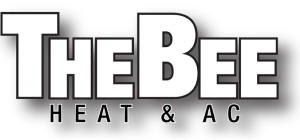You have different systems in your home to keep things comfortable. There’s air conditioning to cool down and control humidity in the hot months.
On This Article
hide
1)
What is a Boiler?
2)
What is a Furnace?
3)
Boiler Vs Furnace: What’s the Difference?
3.1)
1- Boiler Vs Furnace Comfort
3.2)
2- Boiler Vs Furnace Cost
3.3)
3- Energy Efficiency
3.4)
4- Fuel Source
3.5)
5- Indoor Air Quality
3.6)
6- Ductwork
3.7)
7- Radiators and Water/Steam Piping
4)
When to Choose a Boiler?
5)
When to Choose a Furnace?
6)
Still, Thinking? The Bee Heat and AC Can Help!
7)
People Also Ask!
7.1)
How do I know if I have a furnace or boiler?
7.2)
Is a boiler more expensive than a furnace?
7.3)
What are the disadvantages of a boiler?
You have a water heater for nice warm showers or baths. And you use a furnace, boiler, heat pump, or geothermal system to heat your house when it’s cold outside.
Now, let’s focus on boiler vs furnace.
People often interchange these terms, but they work differently to heat your home.
You can check out our blogs to learn about furnaces and boilers. Or, keep reading for a simple comparison between boilers and furnaces.
Let’s start.
What is a Boiler?
A boiler is a heating device that produces hot water or steam by harnessing the heat from the water.
After being heated, the steam or water is sent through pipes to various locations throughout the building, warming the area.
Boilers frequently heat residential buildings and supply hot water for fixtures like showers and faucets.
Here’s how a boiler usually works:
Heating Medium: Boilers heat water to create steam or hot water.
Distribution: Radiators, baseboard heaters, or radiant floor systems receive the heated water or steam via pipes.
Heat Transfer: Radiators, baseboards, or radiant systems release heat into rooms by radiating warmth.
Operation: When the thermostat signals a need for heat, the boiler heats water or generates steam, which is distributed to provide warmth.
Fuel: Boilers can be powered by natural gas, oil, propane, or electricity.
What is a Furnace?
A furnace is a heating system that warms a building by heating the air and spreading it throughout the structure.
The hot air is subsequently forced through ductwork to provide warmth and raise the temperature in various building rooms.
In the winter, furnaces are a frequent primary heating source in residential residences, business buildings, and industrial sites.
A thermostat typically controls the furnace, which adjusts the temperature by turning it on and off as needed.
Here’s how a furnace usually works:
Heating Medium: Furnaces heat air.
Distribution: The heated air is blown through ductwork and vents into rooms.
Heat Transfer: Rooms are warmed as heated air circulates and fills the space.
Operation: Heat is transferred through ducts once the furnace burner starts in response to a reduction in temperature sensed by the thermostat.
Fuel: Furnaces are fueled by natural gas, oil, propane, or electricity.
Boiler Vs Furnace: What’s the Difference?
Besides their operational characteristics, boilers and furnaces differ notably in key ways. Let’s explore them:
1- Boiler Vs Furnace Comfort
Because boilers use water to transmit heat through radiant floor systems or radiators, they offer more even and constant heat. Radiator heat is comfortable and does not cause the air to become dry.
With forced-air systems, furnaces may swiftly heat an area, but their heat may not seem as uniform as that of boilers.
In addition to drying out the air, furnaces can reduce indoor comfort, particularly during the winter.
2- Boiler Vs Furnace Cost
Installing a boiler can be more costly upfront, particularly if you need to install radiant floor heating or retrofit a house with radiators.
However, they might be more cost-effective over time due to their durability and energy efficiency.
Installing a furnace is usually less expensive initially, particularly if you already have ducting.
However, because the furnaces rely on forced-air systems, which might be less energy efficient, they may eventually have greater operational expenses.
3- Energy Efficiency
Since water maintains heat more effectively than air, boilers are frequently more energy-efficient than furnaces. They can, therefore, heat larger areas more effectively.
Although boilers are often more energy-efficient than furnaces, modern furnaces may still need to catch up, particularly in bigger homes or buildings.
4- Fuel Source
Boilers can be operated on various fuels, depending on what’s available where you live, including electricity, propane, natural gas, and oil.
Similar fuel sources for furnaces include electricity, propane, oil, and natural gas.
5- Indoor Air Quality
Since boilers don’t dry up the air as much as furnaces, they often maintain higher indoor air quality.
Drying out the air using a furnace might result in poorer interior air quality, particularly during the winter. You may need more humidification to prevent this.
6- Ductwork
Since boilers transfer heat via water pipes, ducting is not necessary. It can reduce installation costs and space requirements, particularly in older homes without ducts.
Ductwork is necessary for furnaces to deliver hot air throughout a house. The process can be more costly and intrusive if ductwork is still required.
7- Radiators and Water/Steam Piping
Boilers use steam or water pipelines, radiant floor systems, and radiators to deliver heat. Radiators directly bring heat into a room and are typically found in separate spaces.
Instead of water steam pipes or radiators, furnaces heat air and transport it to different rooms via ductwork.
When to Choose a Boiler?
Let’s provide you with some tips on when you should choose a boiler:
For Larger Spaces and Multiple Rooms: Boilers work best in big homes or buildings with many rooms. They spread warmth evenly across large areas and different zones.
If You Want Consistent and Allergen-Free Heating: Boilers are great if you are worried about indoor air quality, especially for people with allergies. They don’t scatter allergens because they don’t blow air around.
If You Like Radiant Heat: Boilers are perfect if you prefer radiant heat, which warms objects and surfaces for a more even temperature.
When to Choose a Furnace?
On the other hand, you should choose a furnace when you have:
Smaller Homes or Tight Budgets: Furnaces are better for smaller homes if you’re trying to save money. They’re often more affordable and practical in these situations.
When You Need Quick Heating: If you live where temperatures can suddenly drop, furnaces are ideal for providing fast warmth.
If Specific Fuels Are More Available: Natural gas or oil is easier to find or cheaper in some areas. In these circumstances, choosing a furnace that operates on that fuel might be preferable.
Still, Thinking? The Bee Heat and AC Can Help!
If you need help deciding which heating system to choose for your house, The Bee Heat and AC can help. We provide extensive Furnace Maintenance and Boiler Maintenance services, so you don’t have to worry. Just reach out, and we will be ready to help.
People Also Ask!
How do I know if I have a furnace or boiler?
You likely have a furnace if you have air ducts and vents for distributing heated air, while you probably have a boiler if your home has radiators, baseboard heaters, or radiant floor heating.
Is a boiler more expensive than a furnace?
Due to installation expenses, boilers might be more expensive initially, particularly when retrofitting a home. However, they may become more economical over time because of their increased energy efficiency.
What are the disadvantages of a boiler?
Boiler disadvantages include higher installation space requirements and potential maintenance needs for checking pressure levels and inspecting valves and pipes.

